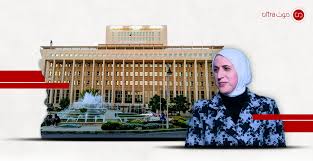The Governor of the Central Bank of Syria, Maysa Sabrin, has confirmed that sufficient funds are available to meet the salary obligations of government employees, even after the substantial 400% increase pledged by the new administration.
Sabrin, appointed following the fall of the Assad regime, emphasized her commitment to strengthening the bank’s independence in monetary policy. Speaking to Reuters, she stated, “The Central Bank is working on drafting amendments to its governing law to enhance its independence, including granting it greater autonomy in monetary decision-making.”
Strengthening Institutional Independence
Economists stress that central bank independence is essential for ensuring long-term macroeconomic stability and the health of the financial sector. Although the Central Bank was nominally independent under the previous regime, its decisions were heavily influenced by government directives.
Expanding Islamic Banking Services
The Central Bank of Syria also aims to expand Islamic banking services to attract citizens who have avoided traditional banking options. According to Sabrin, this initiative may include enabling conventional banks to open branches dedicated to Islamic banking.
Syrian Oil Minister: Exploration and Energy Projects on the Horizon
Islamic banking, which operates in compliance with Islamic law, prohibits interest-based transactions and investments in forbidden activities, such as trading in alcohol, pork, weapons, pornography, or gambling. This system is already well-established in the predominantly Muslim country.
Currency Printing and Reserve Transparency
Sabrin underscored the Central Bank’s effort to avoid printing more Syrian pounds, acknowledging the detrimental impact it could have on inflation. However, she declined to disclose the current levels of Syria’s foreign exchange and gold reserves, citing an ongoing review of the bank’s balance sheet.
Despite this, she reiterated that the Central Bank has sufficient reserves to cover salary payments, even with the promised salary increases.
Restructuring and Regulation
The Central Bank plans to restructure state-owned banks and introduce tighter regulations on money exchange and remittance shops, which have become significant sources of foreign currency. Sabrin highlighted the positive impact of allowing personal remittances from Syrians abroad and expressed hope for the eventual lifting of sanctions to enable Syrian banks to reintegrate into the global financial system.
Impact of Sanctions
The Central Bank of Syria, along with several former governors, remains subject to U.S. sanctions imposed following the Assad regime’s violent suppression of protests in 2011. These sanctions have significantly hampered the bank’s ability to engage with the international financial system.
This article was translated and edited by The Syrian Observer. The Syrian Observer has not verified the content of this story. Responsibility for the information and views set out in this article lies entirely with the author.


